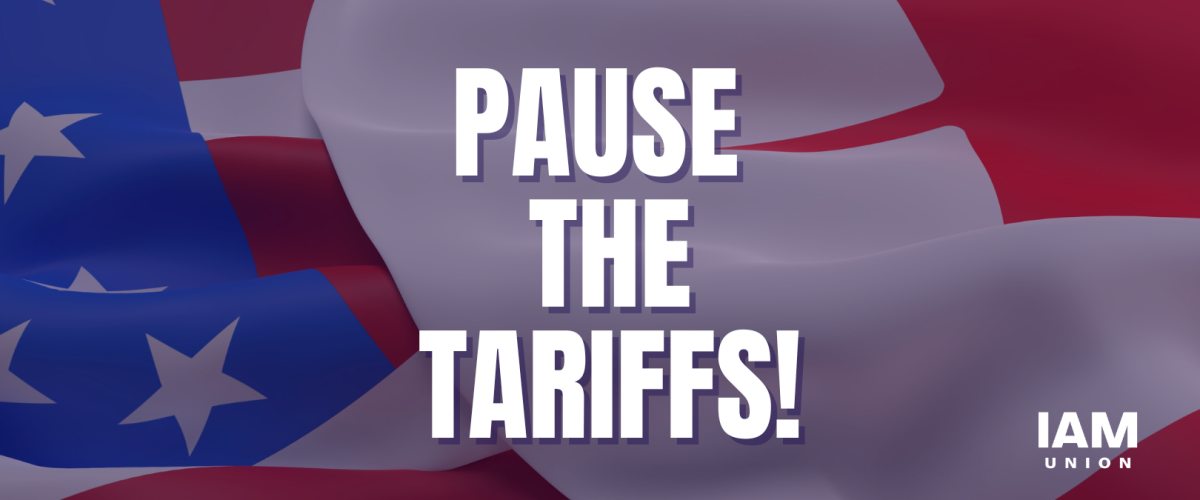Original article published by Reuters: North American aerospace union presses Trump to pause tariffs on Canada | Reuters
Mon, February 3, 2025 at 1:35 p.m. EST 3 min read
By Allison Lampert
(Reuters) – The United States should pause tariffs on Canada as it did on Mexico, the head of the largest North American aerospace union told Reuters on Monday, as industry executives weighed the impact of fresh duties on plane parts and jets.
U.S. President Donald Trump announced executive orders that would impose tariffs of 25% on Canadian imports and 10% on goods from China starting on Tuesday. Trump had planned a 25% tariff on Mexico, but that was delayed after a Monday call with Mexico’s president.
“I would think they would do the same thing for Canada,” said Brian Bryant, international president of the International Association of Machinists and Aerospace Workers (IAM), which represents workers at planemakers such as Boeing.
“We just have so many jobs in the U.S. that export aerospace goods to Canada for their programs up there and we wouldn’t want to see those jobs jeopardized by that.”
Bryant said Trump should meet with unions such as the IAM to hear workers’ views. Some IAM members voted for Trump and probably did not envision “that their jobs are going to be impacted by the potential of what he might do with tariffs,” he said.
Tariffs would add complexity and higher costs to planemaking, with a tight supply chain limiting firms’ ability to find alternative parts. Canada exported C$12.8 billion ($8.78 billion) of aerospace and defense-related products to the U.S. and imported C$10.2 billion worth, according to 2023 government data.
Bombardier shares tumbled as much as 13% before paring losses to around 2%. The Canadian business jet maker said in a statement it will use the coming days to analyze multiple scenarios to avert fallout.
The tariffs’ duration is unclear and Trump’s penchant to shift quickly makes planning for such scenarios more difficult. A trade war would hurt aerospace’s sprawling supply chain at a time when Boeing, a key U.S. exporter, is trying to boost plane production following lower 2024 output.
Boeing has $87.5 billion in inventory from suppliers and aircraft parts are exempt from tariffs under a 1979 treaty that includes the U.S. and Canada, although it is not clear if that agreement would prevent Trump from imposing tariffs on the sector.
Aerospace products and planemaking materials steel and aluminum are targeted by Canada for a second round of retaliatory tariffs in three weeks.
PASSING ON COSTS
Companies that buy aluminum from Canada to make sheets and plates or extrusions for seat racks would likely have no choice but to pass on costs to planemakers, analysts said.
Boeing, European rival Airbus, which also produces jets in Canada and the United States, and suppliers RTX and Honeywell declined to comment.
“The likely outcome will be price increases,” said Frederic Loiselle, a co-founder of Montreal-based private equity firm Thrust Capital Partners, which specializes in small aerospace firms. “There is no capacity to turn to and if it was easy to put in place, the industry would have settled its supply chain issues long ago.”
Loiselle said some of Thrust’s companies had been buying aluminum parts ahead of Trump’s weekend tariff announcements.
The business jet sector would be hard-hit if tariffs persist, said U.S. aerospace analyst Richard Aboulafia. RTX’s Pratt & Whitney Canada produces engines for some business jet models from General Dynamics’ Gulfstream Aerospace and Textron.
Dak Hardwick, vice president of international affairs at the U.S. trade group Aerospace Industries Association, said tariffs on Canada and Mexico could change the “positive trajectory” that has made the U.S. a top aerospace exporter.
($1 = 1.4585 Canadian dollars)
(Reporting By Allison Lampert in Montreal. Additional reporting by Tim Hepher in Paris; Editing by Rod Nickel)



